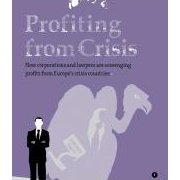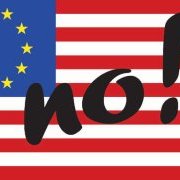investor-state disputes | ISDS
Investor-state dispute settlement (ISDS) refers to a way of handling conflicts under international investment agreements whereby companies from one party are allowed to sue the government of another party. This means they can file a complaint and seek compensation for damages. Many BITs and investment chapters of FTAs allow for this if the investor’s expectation of a profit has been negatively affected by some action that the host government took, such as changing a policy. The dispute is normally handled not in a public court but through a private abritration panel. The usual venues where these proceedings take place are the International Centre for Settlement of Investment Disputes (World Bank), the International Chamber of Commerce, the United Nations Commission on International Trade Law or the International Court of Justice.
ISDS is a hot topic right now because it is being challenged very strongly by concerned citizens in the context of the EU-US TTIP negotiations, the TransPacific Partnership talks and the CETA deal between Canada and the EU.
10-Mar-2014
TNI
Corporations, backed by lawyers, use international investment agreements to scavenge for profits by suing Europe’s crisis countries.
6-Mar-2014
For a variety of reasons, including poor management of public perceptions, the administration’s trade agenda is in trouble. Much of the public’s antipathy toward trade agreements can be boiled down to concerns about the so-called Investor-State Dispute Settlement (ISDS) provision. ISDS enables foreign investors to circumvent domestic legal processes and sue host governments in third-party arbitration tribunals for unfair or discriminatory treatment – described hyperbolically by those fanning the flames of opposition as “running roughshod over domestic laws, regulations, and sovereignty.”
6-Mar-2014
BBC
A judge in the US has ruled that lawyers representing Amazonian villagers used bribes to secure compensation worth billions of dollars from oil company Chevron in Ecuador.
4-Mar-2014
Pakistan has sought a 20-day extension to file its reply to the International Centre for Settlement of Investment Disputes (ICSID) against a damage claim of $2.1 billion filed by Turkish firm M/s Karkey Karadeniz Elektrik Uretim. The sources said Pakistan had to submit its reply to the international body by February 28, 2014 but it was delayed due to a change in legal firm.
3-Mar-2014
AFL-CIO
Millions of Americans are hoping the US government will immediately initiate open and fruitful discussions on ISDS.
3-Mar-2014
Several local newspapers misread the recent decision by the Washington-based International Center for Settlement of Investment Disputes (ICSID) as a verdict forcing the Indonesian government to pay over US$1 billion in compensation to the plaintiff, London-listed Churchill Mining Plc, in regard to its coal mining concessions in East Kalimantan.
25-Feb-2014
New York Times
Repsol, the Spanish oil company agreed to a $5 billion compensation deal with Argentina for the seizure of the company’s operations in that country, ending a bitter two-year dispute.
25-Feb-2014
Alliance News
The thermal coal producer said the International Centre for Settlement of Investment Disputes rejected Indonesia’s jurisdictional challenges and it can now pursue claims for damages under the respective Bilateral Investment Treaties Indonesia entered into with the United Kingdom and Australia.
25-Feb-2014
Lexology
The text of the Korea-Australia Free Trade Agreement (KAFTA) was released on 17 February 2014, following the conclusion of negotiations on 5 December 2013.
24-Feb-2014
Farm Weekly
The Korea-Australia Free Trade Agreement (KAFTA) opens up the potential for Korean-domiciled corporations to sue Australian governments - federal, State and local - over decisions that a company believes to have unfairly affected investments they have made in Australia.
11-Feb-2014
Karkey Karadeniz Electricity Production Corporation (Karkey) has filed a memorial to the World Bank’s International Centre for Investment Disputes (ICSID) claiming $2.1 billion damages against government of Pakistan.
11-Feb-2014
EurActiv
Multinationals will have wide-ranging powers to sue EU states that enact health or environmental laws breaching their "legitimate expectations" of profit, according to a leaked ‘investment chapter’ from the Canada-EU free trade agreement. A separate ‘nature and scope’ document for EU-US free trade talks, which EurActiv has seen, makes clear that similar parameters are foreseen for TTIP.
6-Feb-2014
HBF
New report from the Heinrich Boell Foundation reviews the implications of an investor-state dispute settlement provision in TTIP for environmental policies and standards
5-Feb-2014
Business Day
A stir greeted last year’s announcement by the South African government that it would not be renegotiating bilateral investment agreements with major trading partners such as the EU. However, it now seems as if a lot of dust has settled around the Promotion and Protection of Investment Bill, which is set to replace the agreements.
4-Feb-2014
Stock Market Wire
UK power generator Rurelec has won an historic Bolivian compensation award worth $35.5m, the first granted by an international court against Bolivia.
2-Feb-2014
Fraud Intelligence
By losing its rights under a bilateral investment treaty against a sovereign due to corruptly securing its investment, Metal-Tech marks a seemingly growing trend of bribery playing a critical role in international investment arbitration disputes.
30-Jan-2014
Global Policy Forum
Chemical firm uses trade pact to contest Environmental Law
25-Jan-2014
CEO
This week, the European Commission announced a freeze in negotiations over dangerous corporate rights in the proposed EU-US trade deal (Transatlantic Trade and Investment Partnership, TTIP) and that it would conduct a public consultation on the issue.
25-Jan-2014
The Nation
Activists are challenging rules that grant corporations the right to sue governments, write Robin Broad and John Cavanagh
24-Jan-2014
WSJ
The chief trade negotiators of the US and the European Union admitted obstacles to a trans-Atlantic free trade agreement, but said a European decision to open public consultations over proposed procedures to settle investment disputes wouldn’t delay the accord.

















